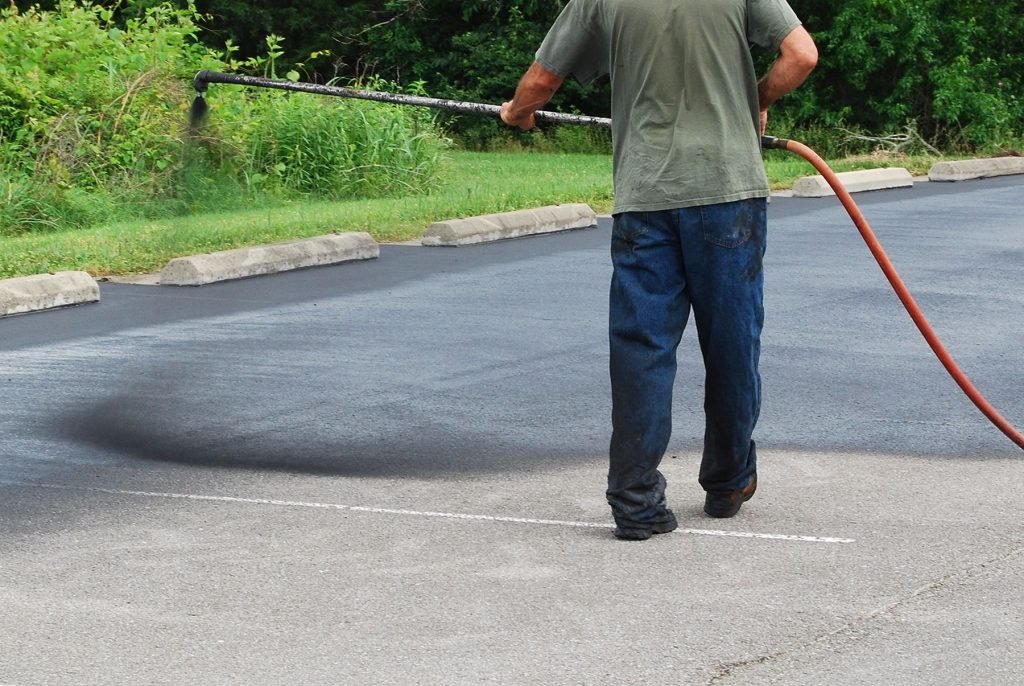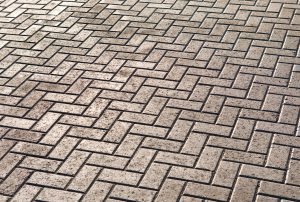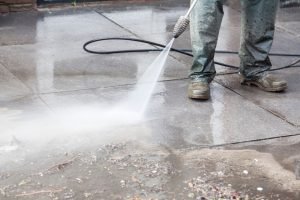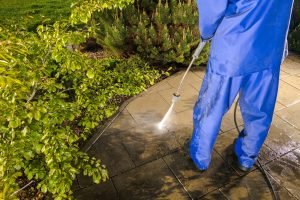Asphalt sealing in Vaughan is an important part of any pavement maintenance program. It provides a protective layer on the asphalt surface, which helps to extend its life and reduce costly repairs in the future. Despite this, many people are hesitant about investing in asphalt sealing services due to perceptions that it is expensive and ineffective. To counter this misconception, one must consider the long-term cost savings associated with properly sealed asphalt surfaces. In fact, studies have shown that regularly maintained sealcoated surfaces can last up to four times as long as those not treated or inadequately protected.
The purpose of asphalt sealing is to protect against damage from weathering, wear and tear, oil spills, gasoline spills and ultraviolet radiation. By creating a barrier between these damaging elements and the underlying asphalt structure, sealant preserves the structural integrity of pavements for years longer than untreated surfaces would last. Additionally, properly applied sealants can provide superior protection against water penetration damage such as cracking and potholes by allowing moisture to escape through evaporation rather than settling into cracks or other weaknesses.
Sealed surfaces also look better aesthetically than unsealed ones because they maintain their color longer without fading or lightening from exposure to sunlight over time; additionally sealant makes cleaning easier since dirt does not become embedded within the layers like it does with unprotected asphalt paving materials. Furthermore, regular maintenance intervals will ensure optimal performance of your sealcoat system thus maximizing your return on investment while extending its lifespan by preventing premature deterioration of your paved area.
Definition Of Asphalt Sealing
Asphalt sealing is the process of applying a protective layer to asphalt surfaces. This sealant serves as an effective barrier against water, oil, and other liquids that could cause damage to the surface. It also helps protect against oxidation, which can degrade the integrity of the material over time. The most common form of asphalt sealant is coal tar pitch or bitumen-based emulsion. These products provide superior protection due to their ability to bond with the existing pavement composition and repel moisture from below. Other forms of sealants are available but may not offer such long-lasting durability or protection beneath the surface.
The application process generally involves spraying on a uniform coat of liquid asphalt product in multiple layers before allowing it to dry. By doing so, any gaps between rocks or particles will be sealed and filled in creating a seamless finish that offers better resistance externally and internally compared to untreated surfaces. In addition, more contact points are created between the sealant and pavement increasing adhesion strength while preventing dirt, debris, and oils from penetrating into the subsurface structure reducing potential for further damage down the road.
When applied correctly these seals help extend the life expectancy of asphalt paving structures by several years making them more cost-effective than standard repair methods used for aged pavement surfaces. Transition sentence: As beneficial as asphalt sealing is for protecting against external elements, there are still additional advantages when considering overall longevity and performance.
Benefits Of Asphalt Sealing
The advantages of asphalt sealing are numerous and can be the difference between a long-lasting pavement surface or one that requires frequent repairs. Through proper application, this method of protection can extend the life of an asphalt pavement by preventing water infiltration, oxidation damage, UV exposure, and fuel spills on the surface.
To begin with, asphalt sealers prevent water seepage into the underlying layers of pavement. This in turn reduces freeze/thaw cycles which then prevents cracking from occurring due to extreme weather changes. Additionally, it helps reduce potholes from forming as well since there is no space for ice to form within cracks if they don’t exist in the first place.
Furthermore, asphalt sealer adds an extra layer of protection against UV rays and other environmental hazards like oil and gas spills. It also improves overall appearance due to added color pigment and keeps out dirt and debris that could otherwise cause clogging in drainage systems or create hazardous driving conditions.
Some benefits of applying asphalt sealer include:
- Improved durability & longevity
- Reduced maintenance costs
- Enhanced visual appeal
- Increased safety through better traction & skid resistance
- Protection against harmful substances such as oil & gasoline stains
By investing in regular preventive maintenance procedures like asphalt sealing services, owners can ensure their property’s value remains intact over time while enjoying all these aforementioned perks without fail. With preparation before sealing being key for successful results, let us now discuss this aspect further in our next section.
Preparation Before Sealing
Preparing a surface for asphalt sealing is one of the most critical steps in the process. Having an adequately prepared surface greatly increases the longevity and effectiveness of any sealant job. First, it is important to clean away all dirt and debris from cracks or joints before filling them with sealant; this ensures that no foreign material is left behind which could compromise the integrity of the sealer coating. In addition, oil stains must be removed if present as they can adversely affect adhesion between surfaces. The area surrounding the pavement should also be cleared of large stones, sticks, leaves and other materials that may interfere with proper application.
Next, it is necessary to assess whether there are any underlying issues such as structural damage or settling occurring on the pavement surface. If these conditions exist they must be addressed prior to applying any sealer coatings as attempting to fill them afterwards will likely not produce satisfactory results. Depending on the severity of any existing damages additional repairs might need to be completed by professionals before proceeding further.
Finally, once all preparation work has been done and verified then it is time for actual application process. Properly prepped surfaces create optimal conditions for effective sealing jobs that last longer than those done without adequate preparation beforehand.
Application Process
The theory that a longer application process results in better product quality has been studied for years; however, research suggests this is not the case. Asphalt sealing services require attention to detail and accuracy from start to finish, with each layer done correctly before moving on to the next. The most important factor in achieving a successful seal is having experienced professionals who understand how all of the layers should be applied in order for them to work together as intended.
Equipment plays an integral role in asphalt sealing services, and it is critical that high-quality tools are used throughout the entire project. This includes things like heated hose systems, crack repair devices, pressure washers, power brooms, squeegees, sealant applicators, and brushes. These items must provide consistent performance during use and be regularly inspected and maintained if they are going to produce reliable results.
When selecting materials for asphalt sealing services there are several factors to consider including climate conditions at site of installation and expected lifespan of completed project. It’s also important to choose products which can withstand extreme temperatures without becoming brittle or cracking over time due to exposure elements such as salt water or freeze/thaw cycles. Quality materials will ensure longevity of seals while protecting surfaces against damage caused by weathering or wear-and-tear over time. Transitioning into the subsequent section about ‘Quality Materials Used’, these considerations become paramount when working with asphalt sealing projects.
Quality Materials Used
After the application process is complete, the next step in asphalt sealing services is to identify and use quality materials. This is critical for ensuring a durable end product that will last for years with minimal maintenance. Quality materials include: sealer, aggregate, oil/asphalt emulsions, reinforcement fabrics, tack coats and primer coats.
| Material | Function |
|---|---|
| Sealer | Protects pavement from water damage and oxidation due to UV rays |
| Aggregate | Provides traction on surface of asphalt paving material |
| Oil/Asphalt Emulsion | Adheres to existing pavement surfaces and increases durability |
| Reinforcement Fabrics | Prevents cracking by providing additional strength and flexibility |
| Tack Coats | Improves adhesion between layers of asphalt |
| Primer Coats | Creates waterproof barrier against moisture infiltration into base layer of asphalt |
Using high-quality materials ensures that the final result has increased longevity while maintaining aesthetic appeal. Additionally, using these materials reduces costs associated with frequent repairs or replacements resulting from inferior products. Professional contractors have extensive knowledge regarding which materials are best suited for different projects based on their specific needs and requirements. The contractor should be able to provide you with an estimate of all necessary supplies needed before beginning work so you can budget accordingly.
Cost Of Services
The cost of asphalt sealing services depends on the size and scope of the project. Generally, a typical residential job will range between $200 to $400 per 1000 square feet. The price may increase if more complicated techniques such as hot rubberized crack-filling are required or if the driveway is longer than usual. It is important to note that additional costs may be incurred depending upon the condition of existing asphalt surfaces and any repairs needed prior to sealing.
Commercial projects often require larger areas being sealed with different types of materials and processes in order to meet specific requirements. Commercial jobs typically start at around $1,000 for 5,000 square feet but can easily run into thousands of dollars for larger projects requiring complex procedures. For commercial clients, it’s best to consult a professional asphalt expert who can provide an accurate quotation based on their assessment of the project area and needs.
Due diligence should be taken when determining which sealant material is best suited for a particular scenario as this can dramatically affect both performance and cost of service over time. Professional advice from an experienced contractor should always be sought in order to ensure desired results are achieved within budget constraints. Transitioning seamlessly into subsequent section about duration of service, it is also important to consider how long each type of sealant takes to dry before traffic can resume normal activities safely on the surface.
Duration Of Service
Asphalt sealing is like a protective coating to your driveway – it will keep out the elements and provide lasting protection. It is important that this layer of protection be applied correctly and with the right amount of care in order to ensure its longevity. Here are the three key components that go into determining how long an asphalt sealant job should last:
- Quality of Materials Used
- Preparation of Surface
- Level of Experience of Technician
The quality of materials used for asphalt sealing services plays a major role in determining how durable the finished product is going to be. High-grade materials, such as coal tar emulsions, can stand up better against inclement weather conditions and remain intact for longer periods than lower quality products. Therefore, when considering an asphalt sealing service provider, it’s essential to make sure they’re using top-notch materials or else you won’t get the full benefit from their work.
Preparation of surface prior to applying any sealants is also critical in ensuring proper adhesion between sealer and substrate. If cracks exist on a driveway before treatment, these must be filled with appropriate filler material so that no moisture seeps through after application. Additionally, excess dirt or debris needs to be removed thoroughly so there is nothing blocking adherence between layers of material being added during the process.
Finally, level of experience possessed by technicians performing asphalt sealing services has a direct impact on expected results achieved from jobs completed. An individual who’s been working in this industry for many years has likely encountered various scenarios along their journey which provides them valuable insight when faced with similar situations now – thus increasing chances for success when dealing with challenging projects requiring more expertise compared to basic ones where little complexity exists. Assembling a team comprised of experienced experts ensures any task at hand gets tackled head-on versus having inexperienced personnel taking shots in dark while hoping something works out eventually without causing further problems down road due to lack understanding or preparation beforehand.
These three factors form foundation upon which successful asphalt sealing job relies; selecting reliable partners capable delivering desired outcome regardless situation presents itself requires careful consideration prior engaging anyone given magnitude project entails overall.. With adequate research done upfront and thorough assessment each component involved within scope construction/maintenance activity based off technical specifications provided one can achieve optimal results over extended period time instead suffering untimely failure caused by poor choices made beginning stages development cycle leading costly repairs later stage operations
Maintenance Tips And Best Practices
To maintain the quality of asphalt sealing services and ensure long-term performance, it is important to follow best practices in terms of maintenance. Asphalt sealcoating should be inspected regularly for signs of wear or damage due to weathering, traffic, chemical exposure, etc. This will help identify areas where repairs may be needed and prevent further deterioration. Additionally, any exposed edges or joints should be sealed with an appropriate material to provide additional protection from water penetration.
Furthermore, regular cleaning and sweeping can help keep asphalt surfaces free from dirt and debris that could lead to premature fading or cracking. Power washing on a semi-annual basis is also recommended; however this should only be done by experienced professionals using approved equipment and cleaning agents designed specifically for asphalt sealcoating applications. Any joint re-sealing required during power washing should also be completed by a professional contractor as part of their service offering.
It is important to note that proper maintenance is essential for preserving the longevity of your asphalt surface. Professional contractors are available with the expertise necessary to properly assess existing conditions and recommend suitable solutions tailored to your specific needs. By following these tips and best practices, you can enjoy years of worry-free use out of your investment in asphalt sealing services. With this knowledge in mind, investing in professional services becomes more prudent than ever before.
Professional Asphalt Sealing Services
Asphalt sealing requires precision and skill. It is a process that ensures the longevity of pavement, protecting it from environmental wear-and-tear. Professional asphalt sealing services employ expert technicians utilizing specialized tools to achieve top results for customers.
| Benefits | Drawbacks |
|---|---|
| Seals cracks & holes | Costly upfront investment |
| Enhances curb appeal | Time consuming processes |
| Protects against UV radiation | May require maintenance over time |
| Improves water drainage system |
The application of sealant replenishes the surface of the asphalt with an extra layer of protection while also enhancing its aesthetic qualities. High quality sealers are designed to keep out moisture, reduce oxidation caused by ultraviolet rays, and prevent deterioration due to salt or other chemicals. Additionally, they can improve the performance of drainage systems and maintain a smooth driving surface free from potholes and cracks. In short, professional asphalt sealing offers significant benefits that far outweigh any potential drawbacks associated with its cost or labor intensity requirements.
Using advanced equipment and techniques, experienced technicians guarantee a seamless installation that is both aesthetically pleasing and highly durable. Furthermore, applying top grade materials enables maximum adhesion as well as superior resistance to harsh weather conditions and extreme temperatures changes. As such, this service provides long lasting value for customers looking for effective solutions for their pavement needs.
Troubleshooting And Repair Services
When it comes to asphalt sealing services, troubleshooting and repairs are often necessary. As such, it is important for contractors to have the knowledge and expertise to diagnose any potential problems that may occur with an existing sealant application before they begin a new project. To do this properly, contractors must first assess the condition of the existing pavement surface and identify any areas where there might be deterioration or damage. Once these issues are identified, appropriate solutions can be implemented in order to restore the durability and longevity of the new sealant application.
In order to properly evaluate pavement surfaces prior to beginning any asphalt sealing job, specialized tools should be used by experienced professionals. These include infrared thermometers which measure temperatures below the surface levels as well as moisture meters which detect levels of water underneath the sealed layer. In addition, visual inspections should also take place in order to identify cracks or other signs of wear and tear on the pavement’s surface. If needed, further tests such as core samples may need to be taken so that detailed evaluations regarding structural integrity can be made.
Once all assessments have been completed, repair work needs to begin if necessary before applying a new coat of sealant material over top. Any damaged asphalt will need removed and replaced with fresh material while holes or depressions will require filling via patching techniques or tamping methods depending on their size and shape. Afterward, a primer coating should also applied in order for optimal adhesion between newly laid paving stones and freshly-applied sealants. By following these steps faithfully during each project, contractors can ensure that every job they perform meets industry standards while delivering excellent results for their customers.
Conclusion
Asphalt is a popular choice of surface for roads, pathways and driveways. As such, it requires regular maintenance in order to stay in good condition. Sealing the asphalt helps protect it from weathering and water damage, preventing cracks and potholes from developing over time.
When deciding how often to have your asphalt sealed, remember the age-old adage “a stitch in time saves nine” – that is, taking preventative measures now will save you more work later on down the road. Different types of sealant are available depending on the type of asphalt surface being treated; therefore, it is important to consult with an experienced professional before sealing any asphalt surfaces.
Finally, both safety and environmental considerations must be taken into account when having asphalt sealed. The use of protective clothing along with proper ventilation systems can help ensure that no harm comes to those involved during or after the process has been completed. Additionally, certain sealants may release harmful chemicals into the environment; thus it is always best practice to choose products which possess minimal environmental impact.
In conclusion, proper maintenance of asphalt surfaces through sealing can greatly extend their lifespan and reduce future repair costs. It is important to carefully consider all aspects before undertaking this task including frequency of application, types of sealant used and associated safety and environmental implications beforehand.
Frequently Asked Questions
How Often Should I Have My Asphalt Sealed?
Asphalt sealing is an important part of maintaining a safe and attractive driveway or parking lot. Properly sealing asphalt can help protect it from the elements, increase its longevity, and prevent costly damage from occurring. This article will discuss how often one should seal their asphalt to ensure proper maintenance.
The frequency with which an individual seals their asphalt depends on various factors including climate, use, type of asphalt, and sealant used. For example, if an individual lives in a hot location such as Arizona they may need to seal more frequently than someone living in a cooler climate like Oregon due to the increased wear caused by higher temperatures. Additionally, areas that receive heavy foot traffic or vehicle traffic will require more frequent attention than those without such activity. The type of asphalt also makes a difference; newer asphalt tends to hold up better against weathering over time while older asphalt needs more regular maintenance in order to remain protected. Lastly, different sealants have varying life-spans so when applying a new coat of sealant one should take this into consideration for future planning purposes.
In general, most experts suggest that resealing be done about every three years unless other conditions dictate otherwise. However, depending on these aforementioned factors individuals may find themselves needing to do additional coats sooner rather than later. It is best practice then to inspect and assess regularly one’s own particular situation before deciding how often sealing is necessary. By doing so you can make sure your asphalt remains in good condition and continues looking great for years to come.
Is Asphalt Sealing Suitable For All Types Of Asphalt Surfaces?
The question of whether asphalt sealing is suitable for all types of asphalt surfaces is an important one. It is essential to understand the characteristics and composition of different asphalt surfaces in order to determine whether they are suited to sealing treatments or not. In general, it can be said that any surface made up primarily of bituminous material is likely to benefit from a sealant treatment.
Sealants work by providing a protective layer over the pavement which helps protect against damage caused by weathering, water penetration, oxidation and other forms of wear-and-tear. This layer also acts as an effective barrier between the underlying paving materials and any pollutants present in the environment. Furthermore, when applied correctly, sealants will help maintain the life expectancy of asphalt pavements by preventing further deterioration due to exposure to UV radiation and freeze-thaw cycles.
Types of asphalt that may not necessarily need sealing include those that have been newly laid or resurfaced with either a hot mix or cold mix process. These surfaces generally contain tar emulsions which provide good protection against environmental factors such as rain and snowfall. However, over time these areas could experience stress cracking or potholes as a result of heavy traffic; at this point sealant application would become beneficial in restoring the area’s durability and aesthetic appeal. It should also be noted that some older paved surfaces may require more frequent applications than others depending upon their condition prior to treatment.
Overall then, it can be seen that there are multiple considerations involved when determining if an asphalt surface requires sealing services or not – from its initial construction through ongoing maintenance needs thereafter. As such, it is best practice for owners/managers of paved areas to consult experts who specialize in assessing individual requirements before making decisions about specific treatments.
What Types Of Sealant Are Used For Asphalt Sealing?
As the adage goes, “prevention is better than cure”; this statement holds true in many cases including asphalt sealing. Asphalt sealant is an important part of preventive maintenance for any type of asphalt surface. When it comes to understanding what types of sealants are used for asphalt sealing, one must consider several factors such as climate, intended use, and budget.
The most common type of sealant used for asphalt sealing is coal tar emulsion. This type of sealant offers a high degree of protection against ultraviolet light and water penetration. It also provides superior resistance to fuel spills, oil spots, and other automotive fluids that can damage asphalt surfaces over time. Coal tar emulsions come at varying levels of viscosity making them suitable for different applications; ranging from small residential driveways to heavily trafficked roadways.
For colder climates where temperatures drop below freezing during winter months, hot-applied rubberized asphalt should be considered instead as its higher melting point makes it more durable when subjected to extreme cold weather conditions. Hot-applied rubberized asphalt will provide longer lasting performance compared to cold-applied products but may require special application equipment which could increase overall cost significantly.
Depending on the situation, there are various options available when selecting a sealant for asphalt pavement projects. It is important to understand the differences between each product so that the best choice can be made regarding quality and longevity while still meeting budgetary requirements.
Are There Any Environmental Issues To Consider When Having Asphalt Sealed?
When considering asphalt sealing, environmental issues are an important factor to consider. Sealant materials used in the process may have potentially hazardous effects on both air and water quality. In addition, long-term exposure of workers and residents near the site of a sealed road can lead to adverse health impacts.
The U.S. Environmental Protection Agency (EPA) regulates sealants that contain polycyclic aromatic hydrocarbons (PAHs). PAHs form when fuel is burned and can cause cancer if exposed over prolonged periods of time. The EPA has set limits for concentrations of PAHs found in residential areas or workplaces, as well as requiring labels detailing their potential hazards. Additionally, some sealants also use volatile organic compounds which react with other pollutants to create ground level ozone pollution, leading to smog formation. Therefore, it is essential that careful consideration is given before selecting a particular type of sealant material for asphalt sealing services.
It is recommended by industry professionals that environmentally friendly alternatives such as coal tar free sealers be used whenever possible due to their low levels of toxicity. These types of sealer usually come pre-mixed with additives which act like emulsifiers to bind them together without using toxic chemicals or solvents during application or curing processes. Furthermore, they reduce dust created by vehicular traffic while still providing adequate protection from weathering elements such as UV rays and rainwater penetration into underlying pavement layers. Ultimately this helps minimize disruption caused by repair works and reduces maintenance costs whilst protecting public health at the same time.
In order to ensure safe use of these products and proper disposal methods afterwards, consulting experienced contractors who specialize in asphalt sealing services would be prudent; ensuring all necessary safety measures are taken before beginning any work onsite will help mitigate risks posed to human health and environment alike.
Are There Any Safety Precautions That I Should Take When Having Asphalt Sealed?
When having asphalt sealed, safety precautions should be taken into consideration. This is especially important if the person performing the work is not a professional contractor with specialized knowledge and experience in this type of service. There are several key areas to consider when having asphalt sealed that may help ensure it is done safely and properly.
The first step to take before beginning any project involving asphalt sealing is to check for utility lines on or near the area being worked on. Utility lines can include gas, electric, water, sewer and telecommunications cables which need to be avoided at all costs during the process. Knowing where these lines are located will help prevent potential accidents from occurring due to contact with them while working.
In addition, proper protective clothing such as gloves, goggles and full-length boots should be worn by anyone involved in the process of asphalt sealing. The materials used contain chemicals that could cause irritation to skin and eyes when directly exposed so it’s important to use appropriate protection throughout the job. It’s also wise to have a fire extinguisher nearby in case of an emergency.
Lastly, care must be taken when disposing of debris generated during the asphalt sealing process. Many local regulations require contractors who perform this kind of work to dispose of hazardous materials appropriately; failure to do so can result in serious environmental issues such as soil contamination or air pollution. Therefore, it’s important for both homeowners and contractors alike to understand their local laws regarding disposal requirements prior to starting any project related to asphalt sealing services.








